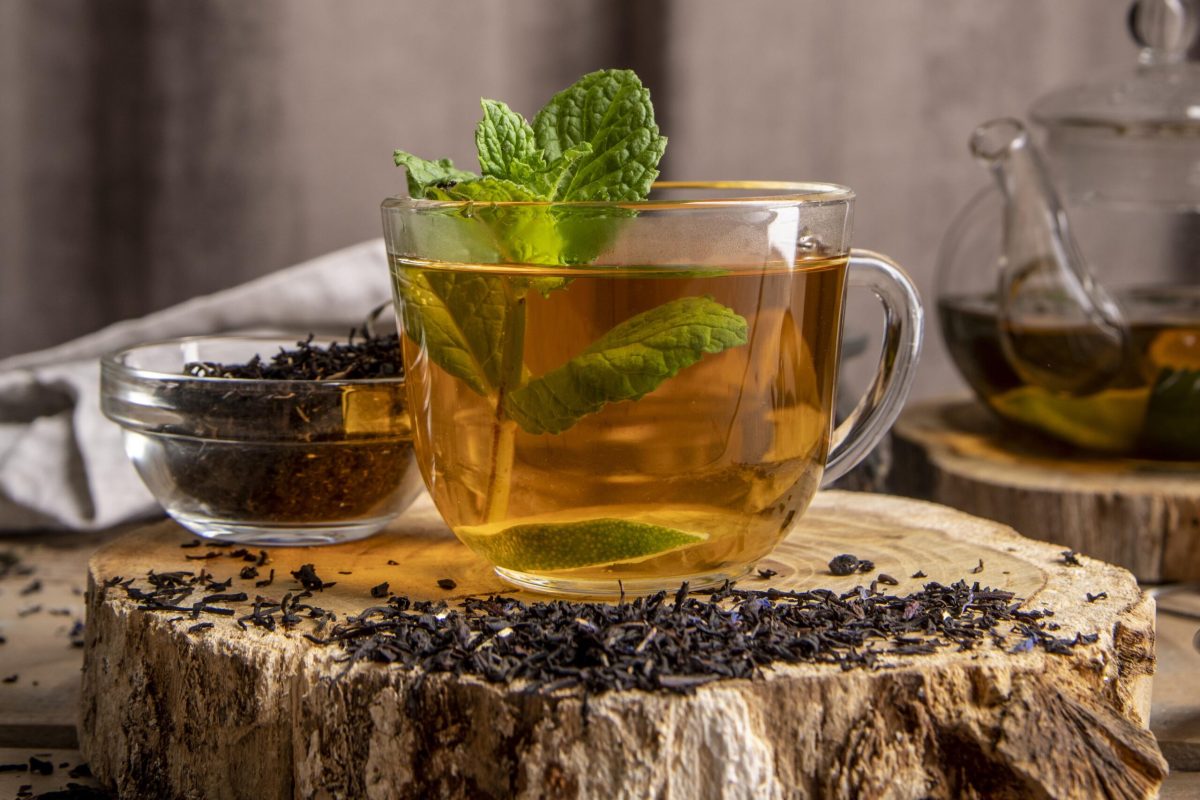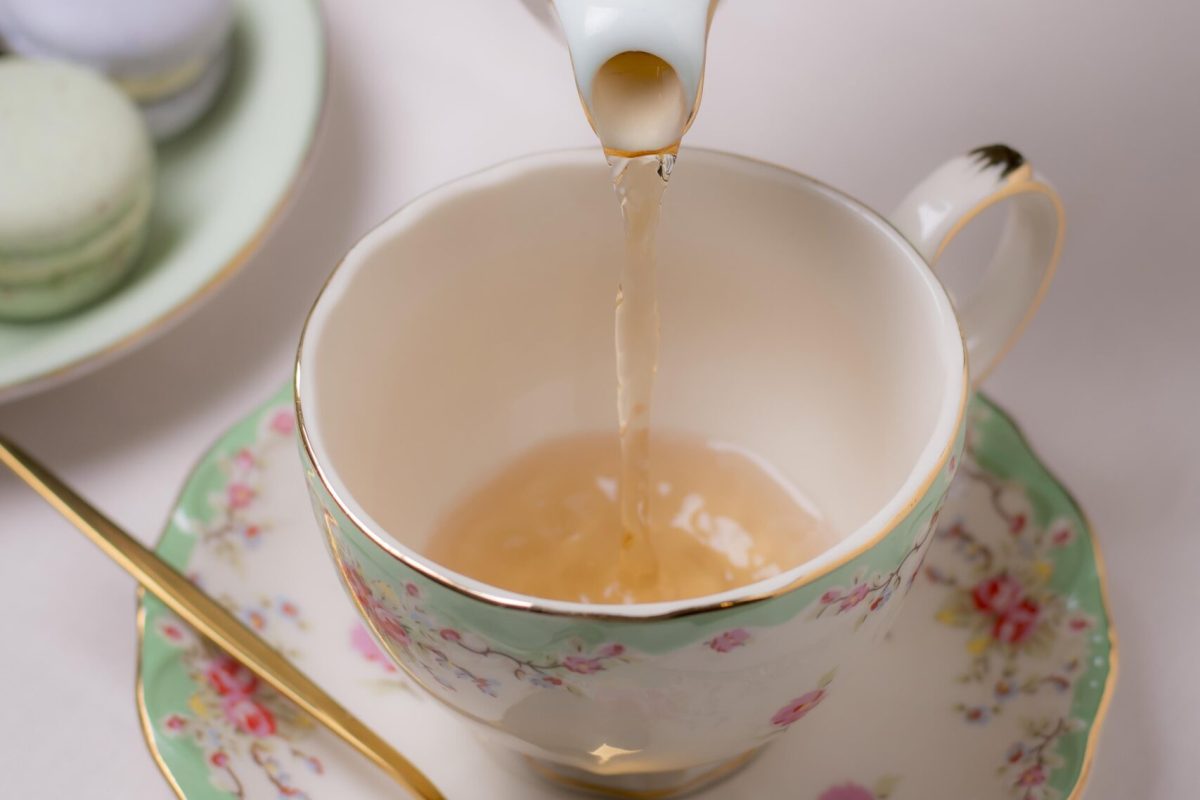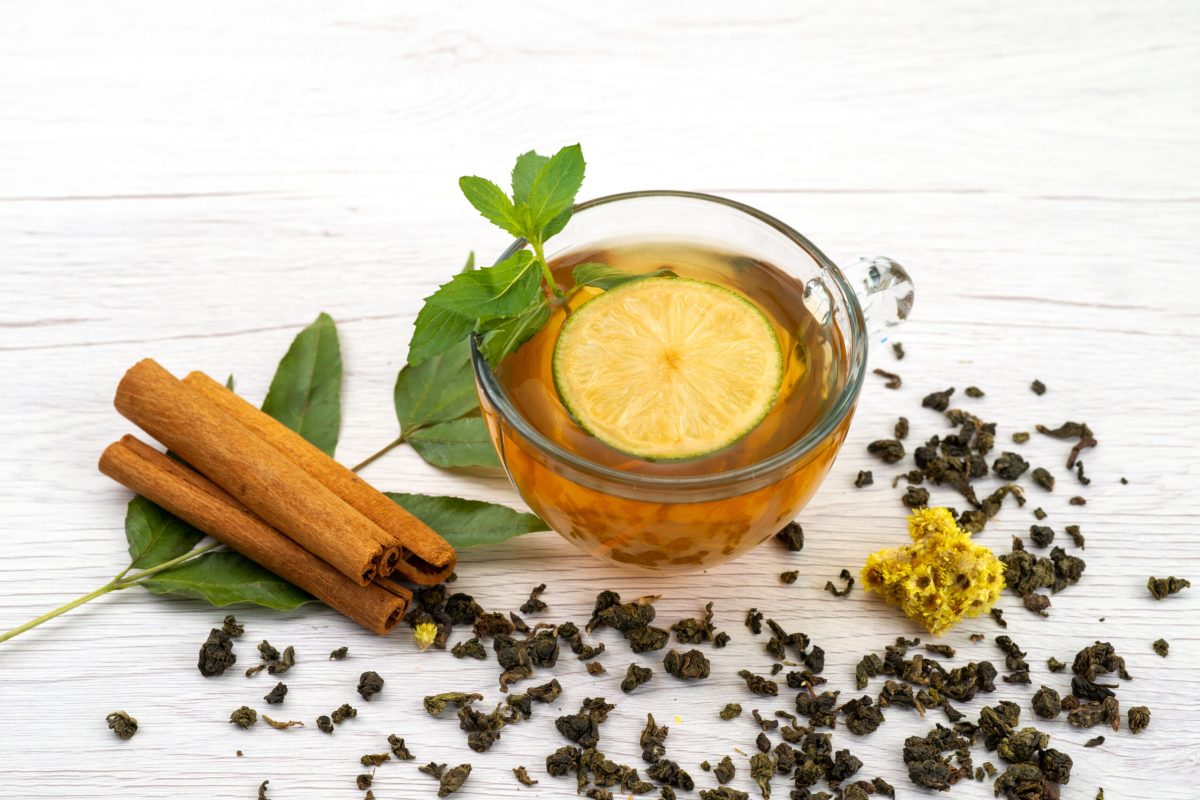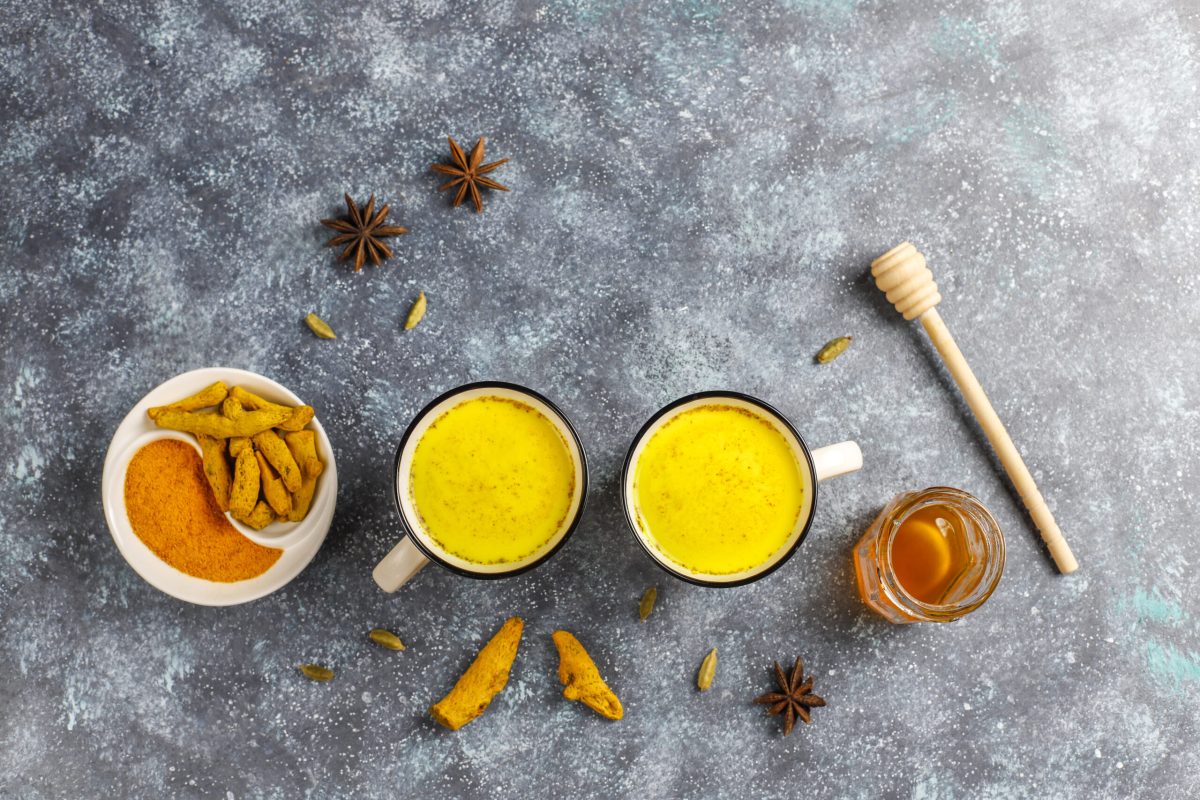Did you know that millions of people worldwide suffer from digestive issues, which cause discomfort and have an impact on their overall health? Imagine a natural remedy that not only soothes your stomach but also tastes great. Herbal teas have been used for centuries to treat digestive issues and promote gut health.
Herbal teas provide a gentle but effective treatment for digestive discomfort. Unlike synthetic medications, these natural remedies provide a plethora of additional health benefits with few side effects. From calming inflammation to stimulating digestion, herbal teas use nature’s power to support and heal your digestive system, making them an ideal addition to your daily routine.

Table of Contents
ToggleCommon Digestive Problems
Digestive problems are common and can significantly disrupt daily life.
Here are some common digestive problems:
- Bloating
- Indigestion
- Constipation
- Diarrhea
- Acid reflux
These problems can be caused by diet, stress, and lifestyle choices, emphasizing the need for natural, soothing remedies.
How Herbal Teas Aid Digestion
Herbal teas provide a gentle, natural way to improve digestion. They work by soothing the digestive tract, reducing irritation and inflammation, which can be uncomfortable. Many herbs, including ginger and peppermint, have anti-inflammatory properties that can help with bloating and indigestion. Furthermore, teas like chamomile and fennel can help promote healthy gut bacteria, which benefits overall digestive health. Integrating these teas into your daily routine can help your digestive system function better and provide relief from common digestive problems.
Top 10 Amazing Herbal Teas for Digestion
1. Peppermint Tea

Peppermint tea is known for its ability to relieve stomach cramps and bloating. The natural oils in peppermint, particularly menthol, help to relax the muscles of the gastrointestinal tract, relieving discomfort and promoting smooth digestion. It is an excellent choice for those with indigestion or irritable bowel syndrome (IBS).
To make a perfect cup of peppermint tea, steep one teaspoon of dried peppermint leaves or a peppermint tea bag in a cup of boiling water for 5–10 minutes. To preserve the essential oils, cover the cup while steeping. Enjoy it after meals to aid digestion, or drink a cup before bed to relax your digestive system overnight.
2. Ginger Tea

Ginger tea is well-known for its ability to stimulate digestion and reduce nausea. Ginger’s active compounds, including gingerol and shogaol, stimulate the production of digestive enzymes, allowing food to be broken down more efficiently. This can help with common digestive issues like bloating and discomfort. Furthermore, ginger’s anti-inflammatory properties soothe the digestive tract, making it an effective treatment for nausea caused by motion sickness, morning sickness, or digestive upset.
To make a soothing cup of ginger tea, peel and slice a fresh piece of ginger root (about 1-2 inches). Bring 1 cup of water to a boil, then add the ginger slices. Allow to simmer for 10-15 minutes to fully extract the beneficial compounds. Strain the tea into a cup, and if desired, add a teaspoon of honey and a squeeze of lemon juice. Drink this energizing tea 1-2 times per day, preferably after meals, to support your digestive health.
3. Chamomile Tea

Chamomile Tea is known for its gentle effectiveness, Chamomile Tea is a soothing elixir that soothes the stomach and reduces inflammation. To make a soothing cup, steep 1 tablespoon dried chamomile flowers in hot water for 5-10 minutes. This brew not only aids digestion but also promotes relaxation, making it an excellent choice for unwinding after a meal or during stressful times. Adjust the dosage to your liking, and consume up to three cups per day to reap the full benefits of digestive health.
4. Fennel Tea

Fennel tea is valued for its digestive and overall health benefits. It works as a natural remedy to reduce bloating and promote proper digestion. To make fennel tea, steep 1 teaspoon crushed fennel seeds in hot water for 5-10 minutes. Consume it after meals to aid digestion, or as needed throughout the day. Its subtle, sweet flavor makes it a welcome addition to any regimen aimed at alleviating stomach pain and improving overall digestive health.
5. Dandelion Tea

Dandelion tea is well-known for its powerful detoxifying properties, particularly in the liver. It aids in toxin elimination, which supports liver function and improves overall digestion. This tea also stimulates bile production, which aids in the breakdown of fats and increases nutrient absorption, making it an excellent choice for those looking to improve their digestion naturally.
To make dandelion tea, combine one to two teaspoons of dried dandelion roots or flowers with a cup of boiling water. Allow it to steep for 10-15 minutes, then strain the mixture. For best results, drink one to two cups daily, preferably before meals to stimulate digestion. Enjoy it plain or with a drizzle of honey for sweetness.
6. Licorice Root Tea

Licorice root tea is well known for its ability to relieve heartburn and soothe the stomach lining. Its natural anti-inflammatory properties help to reduce digestive tract irritation, making it an excellent treatment for acid reflux and stomach pain.
To make licorice root tea, steep one teaspoon of dried licorice root in a cup of boiling water for 5–10 minutes. Strain and serve warm. It’s important to note that licorice root should be consumed in moderation, as too much can raise blood pressure and cause other side effects. If you have any pre-existing conditions or are taking any medications, always consult with a healthcare professional.
7. Lemon Balm Tea

Lemon balm tea is well-known for its soothing effects on the digestive tract. This fragrant tea not only relieves digestive discomfort, but it also addresses stress-related digestive issues due to its natural calming properties. Lemon balm tea reduces stress, which helps to prevent common digestive problems like bloating and indigestion.
To prepare lemon balm tea, steep 1-2 teaspoons of dried lemon balm leaves in a cup of hot water for 5-10 minutes. Drink it warm for the best results, and consider enhancing the flavor with honey or lemon. Consuming it after meals or before bedtime can increase its calming and digestive effects.
8. Slippery Elm Tea

Slippery Elm Tea is known for its calming effects. It coats the digestive tract with a mucilaginous substance, which acts as a protective barrier and helps to reduce inflammation and irritation. This makes it especially useful for conditions such as acid reflux, gastritis, and irritable bowel syndrome (IBS).
To make Slippery Elm Tea, combine 1-2 tablespoons of slippery elm powder with hot water and stir until smooth and slightly thickened. Allow to steep for a few minutes before drinking. You can add some honey or cinnamon for extra flavor. To maximize its digestive-soothing effects, drink this tea 1-2 times per day, preferably after meals.
9. Marshmallow Root Tea

Marshmallow root tea is well-known for its ability to soothe the digestive tract and reduce irritation. The mucilage in marshmallow root forms a protective layer on the stomach and intestine lining, which helps to relieve the discomfort and inflammation associated with digestive issues such as ulcers and gastritis.
To prepare marshmallow root tea, steep one tablespoon dried marshmallow root in a cup of hot water for 10-15 minutes. Strain the mixture and serve warm. For best results, drink this tea 1-2 times per day, especially if you are experiencing digestive discomfort.
10. Turmeric Tea

Turmeric tea is well-known for its powerful anti-inflammatory properties, which can greatly improve digestion. Curcumin, the active compound in turmeric, reduces inflammation in the digestive tract, alleviating symptoms such as indigestion, bloating, and gas. Turmeric also promotes liver function, detoxification, and overall digestive health.
To prepare turmeric tea, heat 2 cups of water and add 1 teaspoon of ground turmeric. Simmer for 10 minutes and strain into a cup. A pinch of black pepper, a slice of fresh ginger, or a teaspoon of honey can be added for additional flavor and health benefits. Turmeric tea is best consumed in the morning or before meals because it stimulates digestion and prepares the stomach for the food that follows.
Conclusion
Incorporating these 10 amazing herbal teas into your daily routine can greatly improve your digestive health. Each tea has a distinct set of benefits, ranging from relieving stomach cramps and bloating to calming inflammation and promoting healthy gut bacteria. Whether it’s the refreshing taste of peppermint or the anti-inflammatory properties of turmeric, these natural remedies offer an effective, all-around approach to digestive health.
We’d love to hear about your experience with these herbal teas! Please leave your comments below, share this post with friends who might find it useful, and explore other related content on our blog to help you continue your journey to better digestive health.
FAQS
The best herbal teas for digestion are peppermint, ginger, chamomile, fennel, dandelion, licorice root, lemon balm, slippery elm, marshmallow root, and turmeric tea. Each of these has its own set of benefits for digestive health.
It depends on the tea and your personal tolerance. Generally, drinking 1-3 cups per day is both safe and effective. A healthcare professional can provide you with more personalized advice.
Yes, you can combine various herbal teas to maximize their benefits. A peppermint and ginger blend, for example, can be especially soothing to the digestive tract. Just make sure you’re not combining teas with opposite effects or potential side effects.
While herbal teas are generally considered safe, some people may experience allergic reactions, digestive discomfort, or drug interactions. Always begin with a small amount to assess your tolerance, and seek medical advice if you have any concerns.
Some herbal teas, such as ginger and peppermint, are suitable for pregnant women and can help with nausea and digestion. However, other teas, such as licorice root and dandelion, should be avoided. It is critical to consult with a healthcare provider before drinking any herbal teas while pregnant.